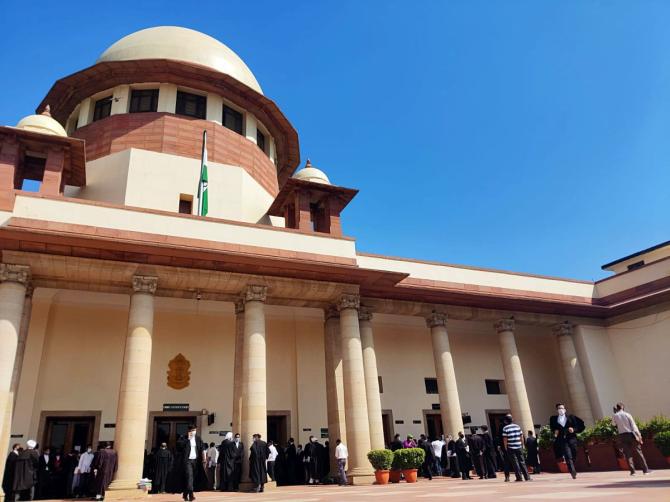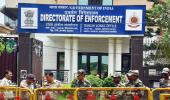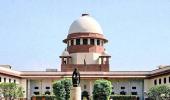The Supreme Court said on Friday that the power to arrest under the anti-money laundering law cannot be exercised according to the whims and fancies of the Enforcement Directorate officer.

A bench of justices Sanjiv Khanna and Dipankar Datta, which granted interim bail to Delhi Chief Minister Arvind Kejriwal in the money laundering case linked to alleged excise policy scam, said any undue indulgence and latitude to the Enforcement Directorate will be deleterious to the constitutional values of rule of law and life and liberty of people.
"An officer cannot be allowed to selectively pick and choose material implicating the person to be arrested. They have to equally apply their mind to other material which absolves and exculpates the arrestee. The power to arrest under Section 19(1) of the PML Act cannot be exercised as per the whims and fancies of the officer," the bench said in its 64-page verdict.
The bench said the ED officers acting under the Section 19(1) of the Prevention of Money Laundering Act (PMLA) cannot ignore or not consider the material which exonerates the arrestee.
"The legality of the 'reasons to believe' have to be examined based on what is mentioned and recorded therein and the material on record.
"However, the officer acting under Section 19(1) of the PML Act cannot ignore or not consider the material which exonerates the arrestee. Any such non-consideration would lead to difficult and unacceptable results," it said.
The bench said the opinion of the ED officer is undoubtedly subjective, but the formation of opinion should be in accordance with the law.
"Subjectivity of the opinion is not a carte blanche to ignore relevant absolving material without an explanation. In such a situation, the officer commits an error in law which goes to the root of the decision-making process, and amounts to legal malice," it said.
The bench made the observation as Kejriwal has argued that the ED has not mentioned in "grounds of arrest" the exculpatory statements made by the witnesses in the case and has only considered inculpatory statements in which he was named.
The top court said a view accepted in the 2022 verdict of Vijay Madanlal Choudhary, which upheld the validity of PMLA, is that the order of arrest under Section 19(1) of the PMLA is a decision taken by a high ranking officer.
"Thus, it is expected that the high ranking officer is conscious of the obligation imposed by Section 19(1) of the PMLA before passing an order of arrest. We are of the opinion that it would be incongruous to argue that the high ranking officer should not objectively consider all material, including exculpatory material," it said.
The top court observed that a wrong application of law or arbitrary exercise of duty leads to illegality in the process and the court can exercise their judicial review to strike down such a decision.
"This would not amount to judicial overreach or interference with the investigation, as has been argued by the DoE (Directorate of Enforcement). The court only ensures that the enforcement of law is in accordance with the statute and the Constitution. An adverse decision would only help in ensuring better compliance with the statute and the principles of the Constitution," it said.
The bench said jurisdictional review permits review of errors of law when constitutional or statutory terms, essential for the exercise of power, are misapplied or misconstrued.
"Judicial review is permissible to check improper exercise of power. For instance, it is an improper exercise of power when the power is not exercised genuinely, but rather to avoid embarrassment or for wreaking personal vengeance. Lastly, judicial review can be exercised when the authorities have not considered grounds which are relevant or have accounted for grounds which are not relevant," it said.
Underscoring that error in the decision making process can vitiate a judgment or decision of a statutory authority, the bench said in terms of section 19(1) of the PMLA, a decision-making error can lead to the arrest and deprivation of liberty of the arrestee.
"Though not akin to preventive detention cases, but given the nature of the order entailing arrest, it requires careful scrutiny and consideration. Yet, at the same time, the courts should not go into the correctness of the opinion formed or sufficiency of the material on which it is based, albeit if a vital ground or fact is not considered or the ground or reason is found to be non-existent, the order of detention may fail," it said.










 © 2025
© 2025